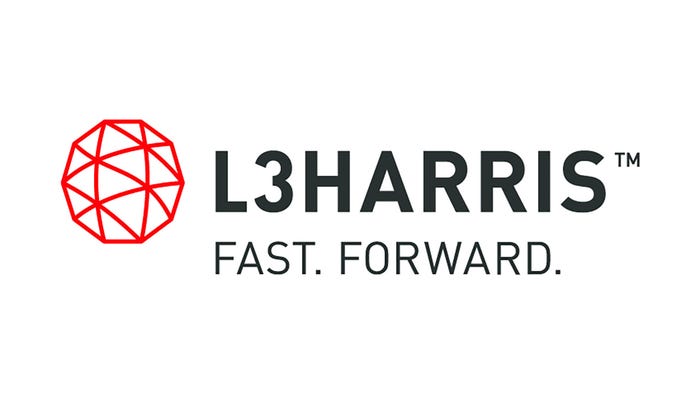Bizcom USA to take over 220MHz land mobile line from DatamarineBizcom USA to take over 220MHz land mobile line from Datamarine
Bizcom USA, Fort Lauderdale, FL, is taking steps to manufacture 220MHz amplitude-companded single-sideband land mobile radio equipment formerly provided
February 7, 2022
Bizcom USA, Fort Lauderdale, FL, is taking steps to manufacture 220MHz amplitude-companded single-sideband land mobile radio equipment formerly provided by the SEA subsidiary of Datamarine International, Mountlake Terrace, WA.
Bizcom USA described its core business as the design and sales of emergency management and disaster relief applications. A niche market for 220MHz equipment that the company has in its sights is “field-deployable wireless connectivity” for emergency command centers.
Bizcom USA has obtained a license for the exclusive right to “make or have made, use or sell” all of Datamarine’s SEA-branded 220MHz products, along with related patent rights and technologies. The value of the transaction was not disclosed, but prior to the transaction, Datamarine had been seeking an investment of $3.5 million. A Bizcom USA spokesperson said the term of the license is forever.
Datamarine will focus on its remaining product lines, including marine radio communications and instrumentation equipment. A subsidiary of Datamarine’s SEA business unit, Narrowband Network Systems, also owns licenses and repeater systems for about 60 5kHz channels in the 220MHz band. The systems are managed by Incom Communications, Irvine, CA, under 20-year contract that has about 19 years remaining.
The president of Bizcom USA, Hank Klein, said that he is Bizcom USA’s majority owner. He said he also is chairman of the two-member board of directors of the privately held company. Klein said that he has previously headed other private companies that he declined to name.
“My background is in marketing and raising capital. I’ve helped to raise capital for a number of other businesses in the communications field,” Klein said.
Bizcom USA’s plans
Several details involving Datamarine, Incom, SMR Advisory Group and other companies provide some indication of Bizcom USA’s plans.
The second member of Bizcom USA’s board of directors, Edward W. “Bill” Lent III, is president of Public Safety Group and Specialized Disaster Systems International, Lake of the Ozarks, MO.
Klein referred to PSG and SDSI as “partners” with Bizcom USA.
“Since ‘9/11,’ we have taken a significant amount of our resources and invested in the growth of Public Safety Group, creating a new and exciting market for our frequency band,” Klein said.
Klein said that, although Bizcom USA does not own any 220MHz systems, the company intends to at some future time. Maxon has been SEA’s original equipment manufacturer, and Klein said that it is a “definite possibility” that Bizcom USA would continue with Maxon.
“We are looking at other possible suppliers, but we would not be willing to disclose who,” he said.
Regarding potential customers, Klein said: “Anyone in the market for a 220MHz 5kHz radio is a potential market for us. We see 220MHz as a viable business unto itself for commercial service besides emergency management. We look to develop the land mobile side as a separate division of the company. We’ve talked with the National Rural Telecommunications Cooperative [a 220MHz licensee] and others in the utility field. And possible customers are not limited to the United States. Wherever 220MHz spectrum is used, we see an opportunity to explore,” Klein said.
Lent said that SDSI looks forward to using 220MHz for data transmission. SDSI’s software serves fixed and mobile emergency command centers.
“The object is to use the 220MHz radio service and data portion to transmit information on disasters so that we can reduce costs for linking command centers together,” Lent said.
Using money provided by Bizcom USA, PSG acquired the assets of SDSI. SDSI’s main products are its EM2000 emergency management software system, the integrated Mate mapping software and licensing of the fire service-oriented Max Responder mapping and terrorism response software.
“While continuing to enhance the capabilities of EM2000 and the development of new integrated products, we are looking forward to advancing the ability of public safety to mitigate the effects of, plan for, respond to, recover from and prepare for all events impacting our citizens and others throughout the world, including terrorist acts such as those of ‘911’,” Lent said.
SMR Advisory Group
Bizcom USA shares headquarters facilities and some administrative services with SMR Advisory Group. SMR Advisory Group operates 220MHz repeater systems under management agreements with their licensees and administers investment partnerships put together by the company’s president, Albert Koenigsberg. SMR Advisory Group also has some 220MHz licenses of its own. Klein said that Bizcom USA provides some consulting service to SMR Advisory Group and vice versa. He said the companies have no common ownership and are otherwise “unrelated.”
The 220MHz systems under SMR Advisory Group’s umbrella include 35 of the 50 largest U.S. cities and many transportation corridors connecting them. Koenigsberg said that the company’s largest regional network reaches from San Diego to Seattle along Interstate 5. Another large network covers part of Florida. The repeaters use LTR-Net technology to offer the possibility of future wide-area networking.
Last year, SMR Advisory Group signed a letter of intent to sell eight 220MHz licenses and repeater systems to Datamarine in exchange for Datamarine stock. The transaction was not concluded.
Koenigsberg said that SMR Advisory Group subsequently offered to buy all of the 220MHz repeater systems owned by the Narrowband Network Systems subsidiary of Datamarine’s SEA business unit. He said that the bid was subject to a first right of refusal on the part of Datamarine’s system manager, Incom. Koenigsberg said that SMR Advisory Group has decided not to buy them “for the time being. We have enough work ahead of us.”
Incom Communications
Incom’s president, Gene Clothier, confirmed that Incom was given the notice of the first right of refusal.
“We didn’t feel that the offer was presented in a proper manner. I don’t say that in an adversarial way, but just to say that the offer wasn’t presented the way it should have been. We wrote a letter to that effect, and I’ve received a memo to say that the whole thing has been dropped. There is no offer, and no action is being taken. We would have continued as the manager of the systems in any event because if SMR Advisory Group had taken over SEA’s position in NNS, it wouldn’t have changed our position in operating them—unless the offer included a provision to buy out our management contract,” Clothier said.
Clothier said that, as the largest dealer of SEA land mobile equipment, Incom may become a Bizcom USA customer. He said that Incom operates systems mostly in Los Angeles, San Francisco, Dallas, Houston, Chicago, Boston and New York.
What does Clothier think about Bizcom USA as an equipment supplier?
“I don’t know anybody except Albie [Koenigsberg] in Bizcom USA, so I really don’t have any knowledge as to what situation I’m facing. I have the highest respect for David Thompson [president of Datamarine, SEA and NNS]. SEA is in business solely because of David’s frugal management in holding it together,” Clothier said.
[Koenigsberg actually is with SMR Advisory Group and not Bizcom USA. –ed.]
“Due to my lack of knowledge about Bizcom USA, I would prefer doing business with David. But the in the future there may be reason to say, ‘Wow, Bizcom USA is the greatest.’ I obviously am concerned because I have to have a source of product. If I had to, I could probably get the product by going direct to Maxon [SEA’s supplier]. If I were to buy in quantity, I probably could, with SEA’s permission,” Clothier said.
220MHz manufacturers
Bizcom USA enters a 220MHz equipment market populated by few other manufacturers. The Securicor Wireless subsidiary of Aerwāv offers voice and data equipment using linear modulation technology, although its OEM supplier for the LM radio products is difficult to confirm. Motorola has announced its intention to manufacture 12.5kHz FM equipment for 220MHz and to sell it through its dealers and through Aerwav. Microwave Data Systems makes data-only products in 220MHz models that work on 5kHz channels.
Philip Adler, owner of PCS Communications, Philadelphia, resigned last month from the Datamarine board of directors as the company prepared to exit the land mobile radio business. Among other radio communications systems, PCS operates 60 channels of 220MHz radio systems in Philadelphia and Baltimore, augmented by working agreements with other 220MHz system operators.
“The successful implementation of this licensing agreement will allow Datamarine to once again play a prominent role in the marine electronics business,” Adler said. “The 220MHz business truly benefited from the involvement of Datamarine and SEA, as David Thompson almost single-handedly developed and implemented 5kHz-wide channel technology at 220MHz. This was a task that the majors, such as Motorola, shied away from.”
Adler said that ACSSB technology probably never would become what Thompson envisioned it could. But he credited the technology with allowing SMR operators to transition from the 800MHz band to another band that offers exclusive licenses without the co-channel interference that can affect UHF trunking.
What’s ahead, technologically speaking
“At some time, in the not-too-distant future, I believe that some form of digital technology will find its way into 220MHz, just as it has with the rest of our electronics world. When this happens, it almost certainly will include a portable unit with a feature similar to the ‘direct connect’ offered by Nextel Communications. With this in hand, 220MHz will be positioned to offer serious competition to Nextel. It is not the telephone service that appeals to businesses, but rather the inter-company compatibility that the direct connect offers,” Adler said.
Thompson added: “While significant accomplishments have been made by Datamarine at 220MHz, including our pioneering efforts with 5kHz technologies, the marine side has been a very significant part of the company for over 30 years. This transaction will allow the company to re-establish the prominence and profitability that it has enjoyed as a leading manufacturer of marine communications and instrumentation products.”



